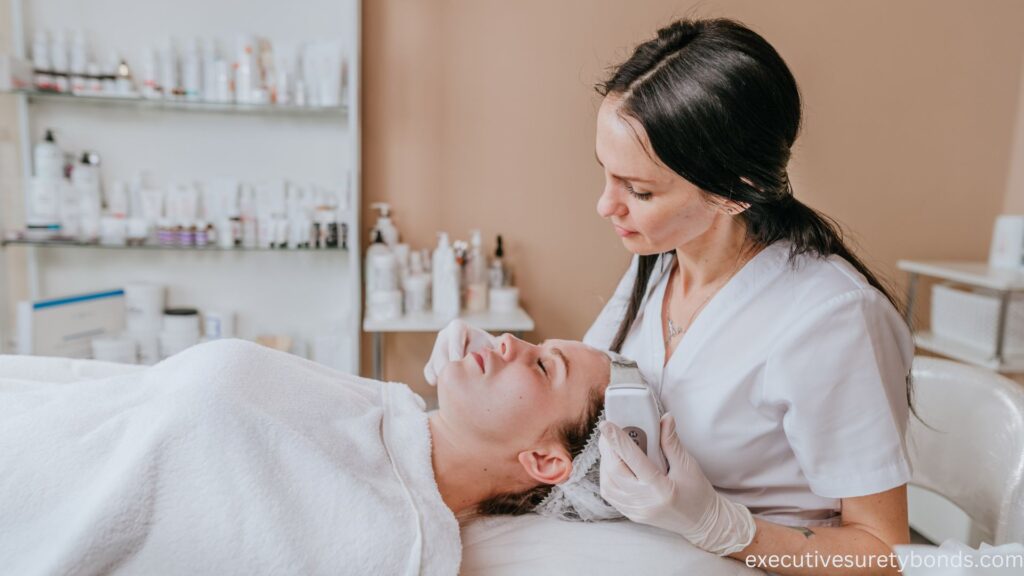Introduction
In the world of beauty and skincare, where flawless complexions and radiant confidence are the goals, esthetician schools play an essential role in shaping the careers of aspiring skincare professionals. Behind the scenes, the Washington State Esthetician School Bond stands as a symbol of trust, professionalism, and adherence to regulations. This article aims to shed light on the purpose and significance of this bond, making it accessible to both beauty enthusiasts and those considering a career in esthetics.
The Purpose of the Bond
Let’s begin by unraveling the purpose of the Washington State Esthetician School Bond. Esthetician schools are institutions that provide education and training to future skincare professionals, teaching them the art and science of esthetics. To safeguard the interests of students and maintain the standards of the esthetics industry, the state mandates that these schools obtain this bond.
The bond serves as a financial guarantee, assuring that esthetician schools conduct their operations ethically and in compliance with state regulations. In simpler terms, it’s akin to a promise: if a school fails to fulfill its obligations, violates regulations, or causes harm to students, there are funds available to cover potential losses incurred by students and the state.
The Cost of the Bond
Now, let’s clarify the cost of the Washington State Esthetician School Bond. The bond amount doesn’t represent the upfront sum paid by the school. Instead, it signifies the maximum coverage provided by the bond. The actual cost that an esthetician school pays for this bond may vary based on several factors.
The bond cost hinges on the school’s track record, financial stability, and the scope of their esthetician training programs. Schools with a strong history of compliance and financial stability often pay lower premiums, which are a fraction of the bond amount. Conversely, those with a less favorable track record or those offering a wide range of esthetician programs may pay higher premiums. This variable pricing ensures that the bond aligns with each school’s unique circumstances.
How the Bond Works
Let’s explore how the Washington State Esthetician School Bond operates in practice. When an esthetician school obtains this bond, they enter into a legal agreement with a bonding company. The bonding company essentially vouches for the school’s commitment to ethical education and compliance with state regulations.
If, for any reason, the school fails to meet its obligations, violates regulations, or causes harm to students, a claim can be made against the bond. The bonding company then investigates the claim and, if it’s found to be valid, provides compensation, up to the bond’s maximum amount, to cover potential losses incurred by students and the state.
Conclusion
In conclusion, the Washington State Esthetician School Bond is a fundamental tool in ensuring the ethical and responsible operation of esthetician schools in the state’s beauty education industry. It offers assurance to students, regulatory authorities, and the public that these schools will uphold the highest standards of professionalism, ethics, and compliance with regulations.
Whether you’re an aspiring esthetician, a skincare aficionado, or simply curious about the world of beauty education, understanding the significance of compliance and the purpose of bonds is essential. This knowledge not only fosters trust in the esthetics industry but also ensures that future skincare professionals receive quality education and training in Washington State.
Frequently Asked Questions
Can an esthetician school use the bond to cover the costs of guest speakers or experts in the field who provide specialized workshops or lectures to enhance the educational experience of their students?
This is an uncommon but relevant question for esthetician schools looking to enrich their curriculum. The primary purpose of the Washington State Esthetician School Bond is to ensure ethical educational practices and compliance with regulations. It typically does not cover expenses related to guest speakers or specialized workshops. Esthetician schools should allocate separate budgets for such enhancements to provide a well-rounded education to their students.
If an esthetician school plans to expand its programs to include advanced skincare techniques or holistic skincare practices, are there specific bonding or regulatory considerations for these specialized programs, and do they impact the bond requirements?
This is an uncommon but practical concern for esthetician schools diversifying their educational offerings. Expanding into specialized areas may require additional bonding or regulatory considerations, depending on state regulations. Esthetician schools should consult with regulatory authorities and legal experts to ensure they comply with all relevant bonding and licensing requirements when offering specialized skincare programs.
Is it possible for an esthetician school to obtain a bond with a higher amount than the required minimum in Washington State, either as a proactive measure to provide extra security for students or to meet contractual requirements with larger educational programs?
This is an uncommon but valid question for esthetician schools. While the state sets a minimum bond amount, some schools may choose to secure a bond with a higher coverage amount if they wish to provide additional reassurance to students or meet contractual requirements for larger educational programs. However, they should be aware that the premium cost will likely increase accordingly.

